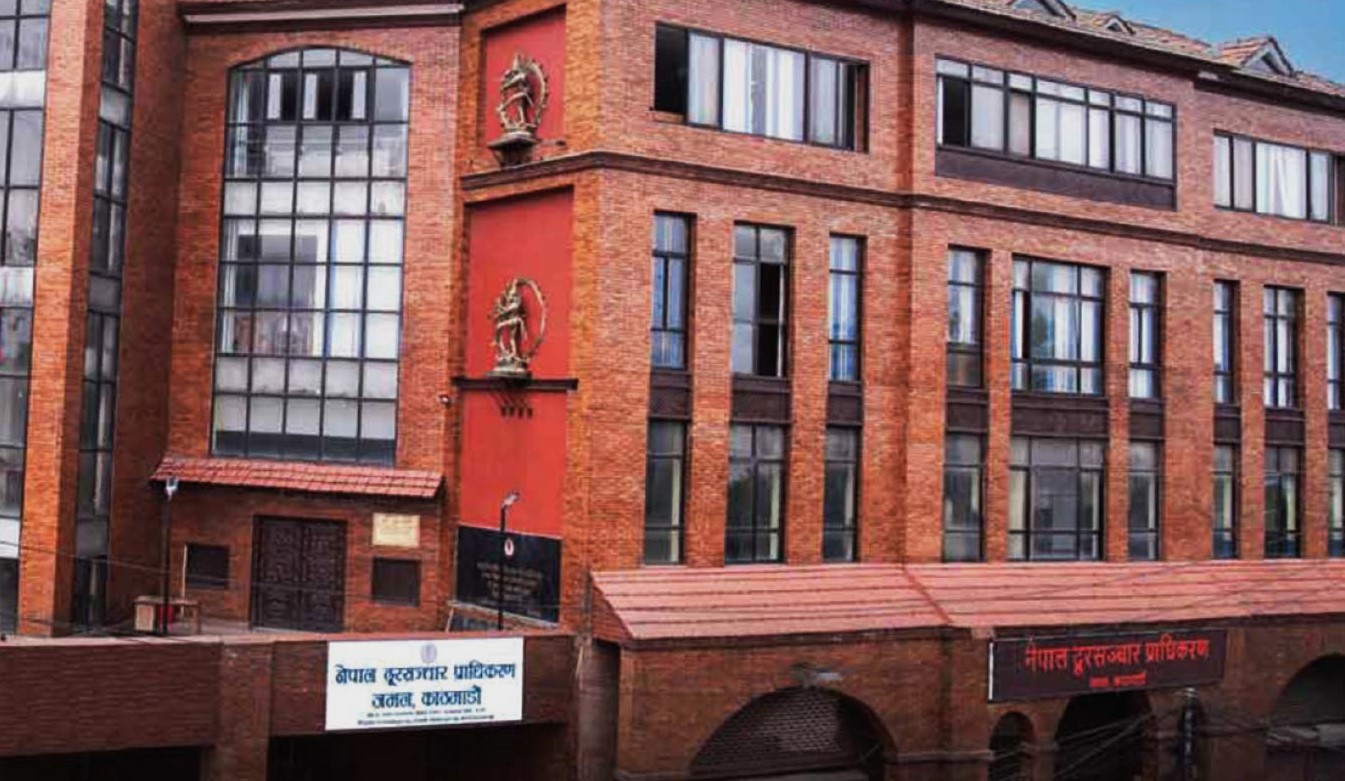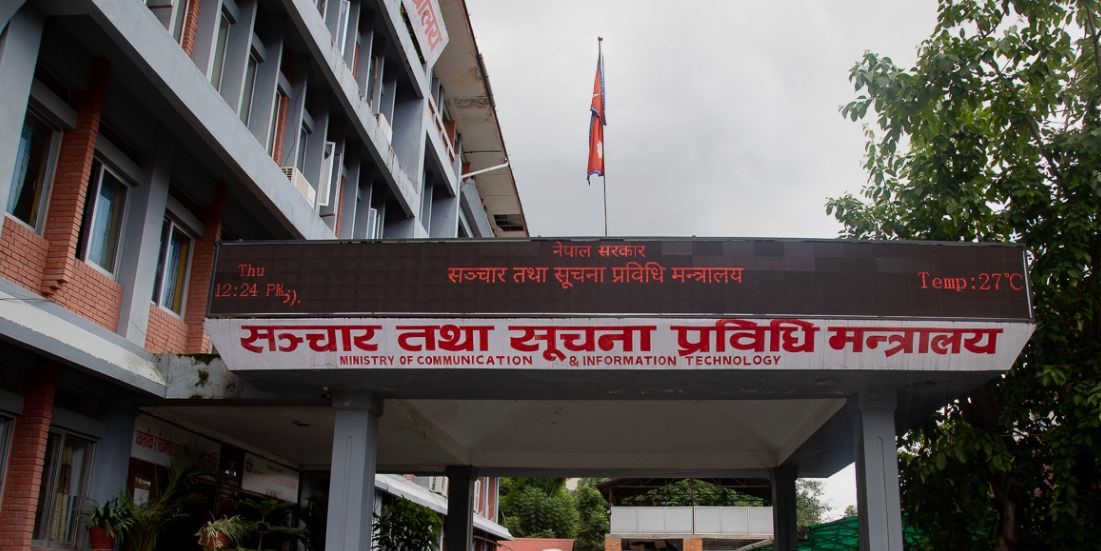Internet might be shut off at any time; payments of 7 billion to Tata and Airtel have ceased.
After being suspended for one and a half years, the sum owed by the network service provider (NSP) to foreign enterprises offering international bandwidth services in Nepal has amounted to seven billion rupees.
Nepalese internet providers are purchasing upstream services, or international bandwidth, from Airtel and Tata Communication in India.
Nepalese businesses will sell their services to other Nepali businesses. But for the past 1.5 years, the government hasn't provided the same facilities as the sum that Tata and Airtel need to pay for the acquisition of upstream services.
The linked source said Online Khabar that the Nepali internet company has reached 4.29 billion rupees because the government did not provide the same service.
Likewise, Nepali businesses still owe Tata 2 billion 68 million rupees.
In this way, since they haven't received a sizable payment in a long time, Airtel and Tata have been threatening to discontinue delivering internet to Nepal.
Airtel limited the bandwidth available to Nepali internet providers for six hours on Baisakh 20. The majority of Nepal's internet firms' services were impacted at the moment.
Using Airtel's bandwidth, more than 70% of internet services in Nepal are provided. About 20% of the shares are owned by Tata Communication. Therefore, ninety percent of Nepal's internet bandwidth is used by these two corporations.
According to official sources, internet service could be terminated at any time if the government does not offer the same facility and Indian businesses do not receive it.
Payments to overseas service providers cannot be made voluntarily by internet enterprises. Nepal Rastra Bank ought to offer a foreign exchange facility for that. The Nepal Telecommunication Authority must write a request for the same facilities before the National Bank, with approval from the Ministry of Information and Communication Technology, can offer them.

But in a letter to the Telecommunication Authority, the Ministry of Information and Communication Technologies requested that they refrain from offering these services. Rekha Sharma, the former minister of communications, had directed internet service providers not to offer comparable services without remitting royalties and taxes, along with maintenance fees, to the Rural Telecommunication Development Fund (RTDF).
Internet service providers, however, maintain that there would be no tax applied to maintenance and repair costs. Worldlink Communications had twice appealed to the Supreme Court, challenging the government's judgment.
The petition of Worldlink was dismissed by the Supreme Court on Baisakh 30. It is unclear, though, exactly what has been decided on it given the Supreme Court's order has not yet been made public in its whole.
According to the internet service provider, they won't pay these royalties and RTDF costs until the Supreme Court's ruling is published in its entirety. But the government has stuck to its guns and won't give the same amenities without having to pay this kind of money.
There's a risk that Nepal could lose internet access altogether at any time due to accusations made by both the government and businesses.
According to Sudhir Parajuli, President of the Internet Service Providers Association of Nepal (ISP), the government's attempt to halt the operation of vital services like the internet because of tax issues is reckless.
Airtel suspended internet service in May of last year. The situation remains unchanged, he added, despite the government's declaration that it will make an effort to find a solution. The amount of money left over has only grown by one month.
He claims it is unjust to halt the payment of the purchase price of raw materials while the tax dispute with individuals who have been in business for decades is pending in court.
Internet access is now considered an important service by the government. Blockers of these services face jail time as a penalty. But stopping the payment from the government is absurd,' he declared.
Declaring that the subject has already been determined by the court, he stated the corporation will be prepared to pay the applicable tax when the entire text becomes available. But in the name of collecting taxes, he argued, it is unfair for the government to want to shut down the businesses' operations.
Previously, international internet bandwidth service providers have threatened to halt internet access if payment is not received in letters that Airtel and Tata Telecom have addressed to Nepali service providers on multiple occasions. Additionally, it is reported that Spain has brought this to the attention of the Ministry of Communications and the Telecommunications Authority.
Nonetheless, prior to Ispan making a remark, the administration disregarded how critical this problem is.

According to Worldlink Communication's president, Dilip Aggarwal, if the firms that supply bandwidth are not paid, they would probably raise the price at which they sell their services in Nepal in the future. Once Nepal banned this form of payment, it turned into a dangerous market for foreign businesses. There could be a chance to charge a hefty price when selling services to us tomorrow, given this danger,' he stated.
The Ministry of Communications' spokesperson, Gajendra Kumar Thakur, stated that there is a connection between taxes and this matter. "The Telecommunication Authority will recommend foreign exchange facilities, but it is natural for the government not to recommend it until the tax due to the state is paid," he stated.
But he added that since the Supreme Court has already made a ruling on this matter, the tax problem will follow suit. While the summary of the Supreme Court's ruling has already been released, the complete text is still to come. That means that since the internet service provider has stated that they must pay tax, those who do so will instantly be granted access to the same facilities, while those who do not will not. After the complete wording of the ruling is made public, this issue will be resolved, he stated.
In response to the question of why the Ministry of Communications had not offered comparable services when the government had maintained Internet access as a necessary service, he stated that he was unaware of the previous controversy and that he would now act in accordance with the court's ruling.
Santosh Paudel, a spokesman for the Telecommunication Authority, added that since the Supreme Court has already made a decision regarding the tax matter, the issue will be resolved after the companies make the appropriate payments.
The tax must be paid, according to the Supreme Court's ruling. He stated, "Companies do not get the recommendation of the same facility without paying the tax," but since the entire text has not yet arrived, they have not been able to inform them about the tax. Once it does, it will be in accordance with what is stated in it.
According to him, the internet service provider must pay RTDF fees and royalties totaling more than 2.5 billion rupees.
The bandwidth that is stolen from Airtel makes up about 70% of the Internet market in Nepal. The remainder is owned by Tata Telecom. Despite importing bandwidth from China, Nepal Telecom's supply remains restricted.






